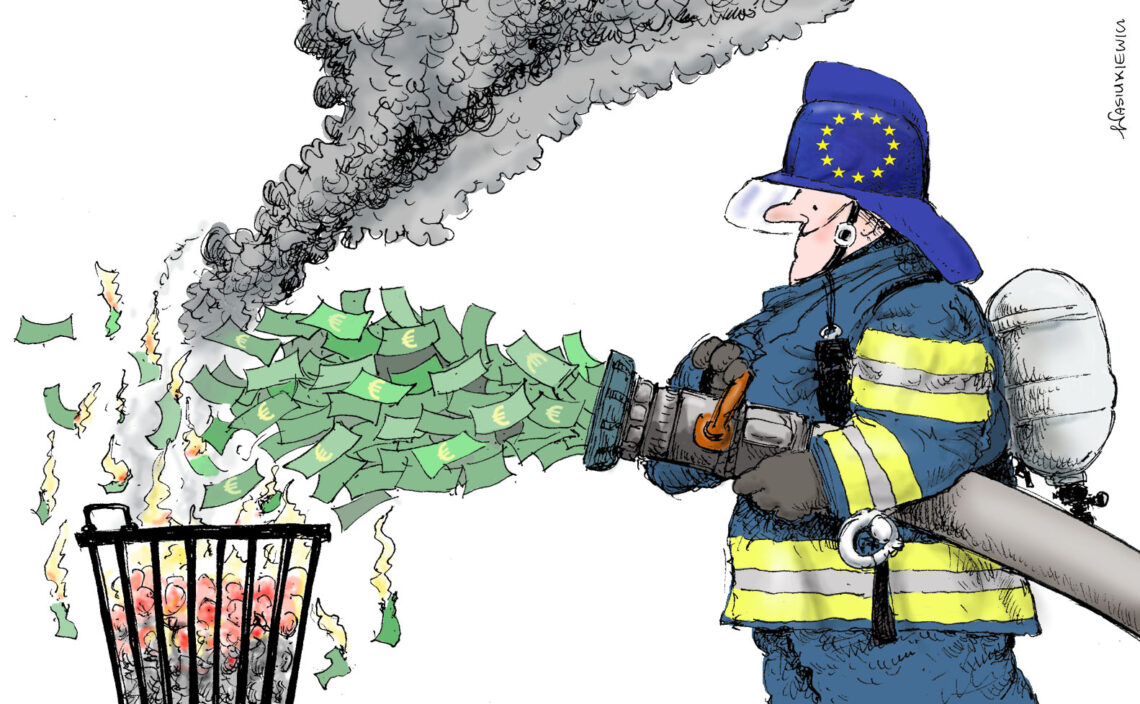A trillion euros on the wrong policy
There are several cost-efficient and market-friendly policies that could be implemented to reduce the impact of carbon emissions on the environment. The EU “green” policy proposed by the European Commission is not one of them.

The European Commission proposes to spend one trillion euros over the next seven years to fight man-made climate change. The European Investment Bank will be in charge of administering and investing these funds. How these trillion euros will be financed remains somewhat obscure so far.
Obviously, it is important to fight pollution and waste and minimize their effect on the environment. However, natural changes in climate, which have always existed, will continue to take place. Furthermore, European emissions account for only a small percentage of global pollution, and our continent is continuously improving.
European emissions account for only a small percentage of global pollution.
This trillion euros to be spent instead appears to be the financial basis of a centrally planned and guided economic stimulus. Unfortunately, this will also act as a tool to redirect our successful market economy model toward a planned economy.
The idea of an “ecological” economy will not be achieved through central planning. Rather, such a goal could be reached by creating a framework similar to the Ordnungspolitik, which established the legal and institutional basis for Germany’s “social market economy” in the 1950s. The Ordnungspolitik created a free-market framework based on entrepreneurship, private initiative and competition, with social aspects but also limiting government interventions. This allowed the economy of the defeated nation to recover more quickly than those of victorious Britain and France and resulted in prosperity and social cohesion.
The idea of an ‘ecological’ economy will not be achieved through central planning.
Carbon emissions worldwide could be reduced with a global carbon market and a stronger focus on nuclear energy would help in this context. Nuclear power plants are virtually carbon neutral and have become much safer. The amount of nuclear waste produced has also been reduced drastically. A free global carbon market would result in the right incentives, also outside the EU.
However, neither the European Commission nor Germany, Europe’s largest economy, are pursuing this policy.
